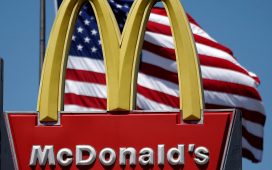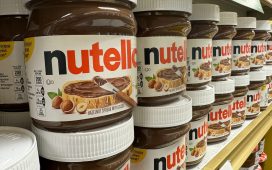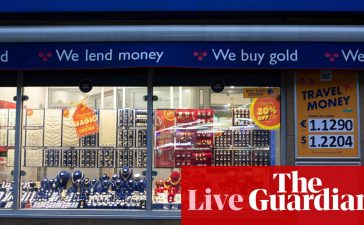Unlock the Editor’s Digest for free
Roula Khalaf, Editor of the FT, selects her favourite stories in this weekly newsletter.
“AI” is 2023’s word of the year. In the noughties, “Tescopoly” and “Tescoisation” were contenders. They referred to the dominant position of the UK’s largest supermarket chain. Such rants are uncommon these days. Tesco lost its mojo for a while. German discounters such as Aldi and Lidl took advantage of its lapse.
The noughties may now be repeating on us. On Thursday, J Sainsbury followed Tesco in reporting market share gains. Collectively Tesco and Sainsbury’s now dominate 42.2 per cent of the market, according to Kantar Worldpanel, a data group. That is up from 41.7 per cent a year ago.
No one is railing against “Sainscopoly” just yet. Joint market share remains well below a peak of 47.5 per cent in 2011. Nevertheless, the pair are poised for progress. Competitors such as Wm Morrison and Asda, which account for more than a fifth of the market, are struggling with highly leveraged balance sheets.
For Sainsbury’s chief Simon Roberts, the improvement is the culmination of a three-year strategy. When he joined in 2020, Sainsbury’s was a relatively expensive place to shop. Roberts has since invested nearly £700mn in prices. A £1.3bn savings programme, of which £1.1bn is already in the bag, has helped.
First-half food sales rose 10.1 per cent, although a poor performance at general merchandiser Argos meant underlying pre-tax profit remained flat at £340mn. Britons did not spend so much on high-margin products such as paddling pools this summer.
Sainsbury’s and Tesco shares have both gained more than 20 per cent year-to-date. Of the two, Tesco’s shares look like the better bargain at 11 times forward earnings versus 12 times for Sainsbury’s.
Can they maintain momentum? Sainsbury’s must continue improving sales volumes to improve its skinny retail operating margin of 2.91 per cent. That could be a tall order in a slowing economy.
The pair have balance sheet strength on their side. Sainsbury’s net debt to ebitda ratio improved to 2.6 times at the end of the first half, after generating retail free cash flow of £520mn. It is virtually ungeared when supermarket leases are excluded, says Clive Black of Shore Capital.
That would give them firepower in a price war. This would forestall any revival of populist anti-grocerism. Campaigns against Tesco in the noughties failed largely because its prices were too low.
The Lex team is interested in hearing more from readers. Please tell us whether you think Tesco and Sainsbury are becoming a duopoly in the comments section below.










